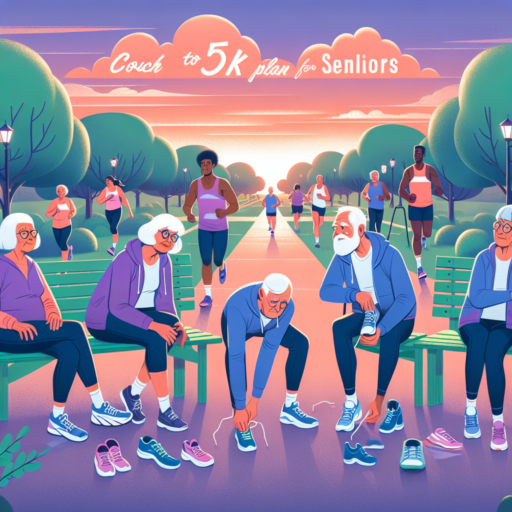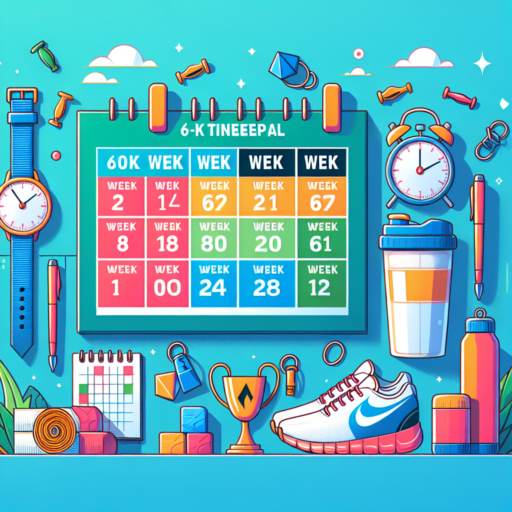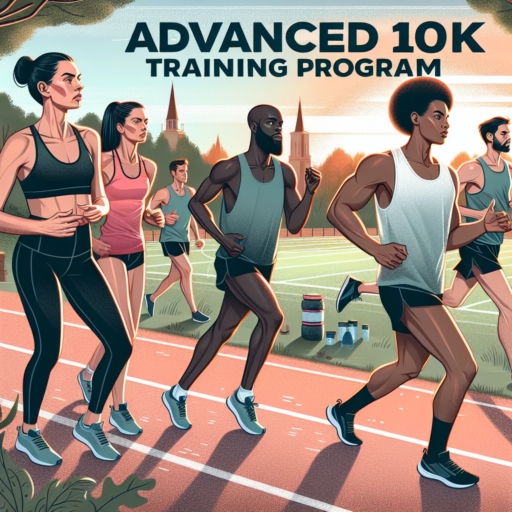Can a 60 year old do Couch to 5K?
Many individuals approaching or in their sixties may wonder if embarking on a running journey like the Couch to 5K program is a suitable endeavor for their age group. It’s a valid concern, given the physical challenges that can come with age. However, the beauty of the Couch to 5K program lies in its accessibility and adaptability, making it an appealing option for those aged 60 and above who are keen on improving their health and endurance through running.
Understanding the Couch to 5K Program
The Couch to 5K program is designed to help absolute beginners transition from little or no exercise to running a 5K in just nine weeks. It uses a mix of walking and running to gradually build up the participant’s endurance and physical fitness. For 60-year-olds, the key to success with this program is to focus on their unique pace, listen to their bodies, and be willing to adjust the schedule as needed to accommodate their physical capabilities and prevent injuries.
Adjusting the Program for Older Runers
One common question is whether adjustments need to be made for older runners. While the basic structure of the Couch to 5K can remain the same, individuals in their 60s might consider extending the duration of the initial walking phases, reducing the pace of the running intervals, or even repeating weeks before progressing to ensure their body can adapt safely and effectively. The emphasis should always be on enjoyment and gradual improvement, without pushing too hard to avoid potential setbacks.
How do I train for a 5K over 60?
Training for a 5K run is an impressive goal at any age, particularly for individuals over 60. The key to success lies in adopting a structured, yet adaptable, training regimen that caters to your unique fitness level and health considerations. Initially, it’s critical to consult with a healthcare provider to ensure running is a safe activity for you. Once you have the green light, the journey to crossing that 5K finish line begins with understanding the basics of endurance building, balance improvement, and injury prevention.
Start Slow and Steady: Beginning your training with gradual, low-intensity runs or walks is crucial. Incorporating walking intervals into your runs can significantly reduce the risk of injury while still effectively building stamina. A typical approach might be starting with a routine of walking for four minutes and running for one, gradually increasing the running intervals as your endurance improves. Remember, consistency is more important than speed or distance initially.
Building Up Endurance
Endurance is the backbone of a successful 5K run, especially for runners over 60. To build endurance, mix longer, slower runs with shorter, faster ones throughout your weekly training. This variety in training not only prevents boredom but also enhances your cardiovascular health and muscle strength. Tailoring the length and intensity of these sessions to your current fitness level is essential to prevent overexertion and potential injuries.
Lastly, don’t overlook the importance of rest and recovery. Adequate rest days are as crucial as training days. These allow your body to recover and muscles to rebuild, reducing the risk of injury and making your training more effective. Incorporating gentle, restorative practices such as yoga or pilates on rest days can further enhance flexibility and balance, supporting your overall 5K training goals.
What is a good 5K time for a 70 year old man?
When determining what is a good 5K time for a 70 year old man, it’s important to consider a variety of factors including health status, running background, and individual fitness levels. While the average 5K finishing time varies significantly among individuals, age-graded calculators can provide a personalized benchmark that adjusts race times for age and gender, offering a fair comparison to the performances of runners of all ages.
Generally, a respectable 5K time for a 70 year old man would fall somewhere in the range of 30 to 40 minutes. This estimate considers the natural decline in speed and endurance as one ages. However, it’s crucial to understand that this range is broad and can be influenced heavily by the runner’s active lifestyle, previous running experience, and even genetic factors.
For those looking to gauge their performance or set personal goals, engaging with a local running club or participating in senior athletics events can provide valuable insights and benchmarks. Setting a goal time can be an excellent motivation, and age is certainly not a barrier to improving running performance or achieving new personal bests in a 5K race.
No se han encontrado productos.
Can you lose weight with a Couch to 5K?
Embarking on a Couch to 5K program is an exciting journey towards improving your fitness and overall health. One of the most common questions aspiring runners have is whether this program can also aid in weight loss. The answer is a multifaceted one, depending on various factors including dietary habits, consistency, and supplementary activities.
At its core, the Couch to 5K plan is designed to gradually build your running stamina through a structured program over nine weeks. By increasing your physical activity, you naturally boost your calorie expenditure. Coupled with a balanced diet, this can indeed lead to weight loss. It’s essential, however, to understand that weight loss results can vary from person to person based on individual metabolic rates and lifestyle choices.
To optimize your Couch to 5K experience for weight loss, consider incorporating the following tips:
- Keep a food diary to monitor your caloric intake.
- Mix in strength training two days a week to build muscle and improve metabolism.
- Stay hydrated and focus on eating whole, unprocessed foods for proper nutrition.
Remember, the Couch to 5K program not only has the potential to kickstart your weight loss journey but also sets a foundation for a healthier, more active lifestyle. By committing to the program and making mindful choices about your diet and exercise routines, you can maximize your results and perhaps find yourself closer to your weight loss goals upon crossing that 5K finish line.




